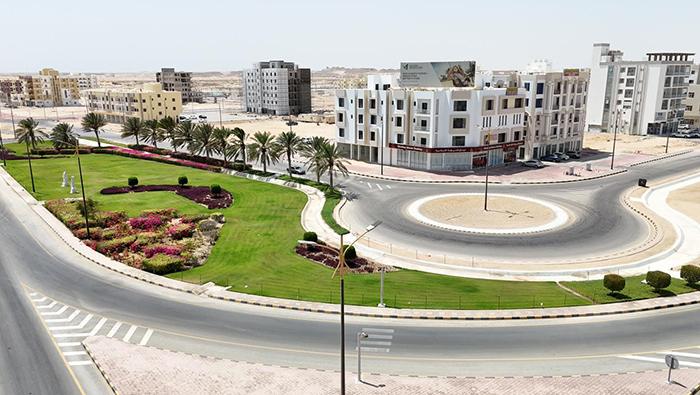
Duqm: Between 2015 and mid-2025, the Special Economic Zone at Duqm (SEZAD) implemented comprehensive afforestation and green space expansion plans, marking a qualitative leap in the environmental and aesthetic landscape. These efforts have transformed the city into a more livable, work-friendly, and investment-attractive environment, despite its desert nature and arid climate.
In the preparatory phase (2015–2021), 3,414 trees were planted, along with 24,760 square meters of green spaces. Modern irrigation systems were installed in several plantation sites, in addition to projects connecting these sites to treated wastewater networks. This enabled the reuse of treated water, reduced fresh water consumption, and lowered operating costs. Works included greening main streets such as Sultan Said bin Taimur Street, Sai Street, and the Tourist Street.
The first phase (2021–2025) witnessed major expansion, with 8,398 trees planted and 24,144 square meters of green spaces developed, all equipped with modern irrigation systems. Duqm’s first agricultural nursery was also established on a 5,000-square-meter site to produce thousands of seedlings annually, supporting afforestation projects, replacing affected trees, and encouraging green initiatives. Projects covered key sites such as Sultan Qaboos bin Said Street, Airport Street, the commercial district park in Sai, and the beach park in the tourism zone.
As a result, a total of 11,812 trees and nearly 48,904 square metres of green spaces have been planted during the two phases, with an implementation cost of around OMR4.4 million.
Eng. Ibrahim bin Zahir Al-Rawahi, Head of the Landscaping and Gardens Department at SEZAD, stated that these efforts are part of a comprehensive vision to expand green spaces and enhance the quality of life in Duqm.
The initiative aims to improve the local climate, reduce the impact of sand-laden winds, provide a natural recreational outlet for residents, visitors, and investors, and promote environmental sustainability by using treated wastewater for irrigation.
He noted that the next phase will see larger-scale greening projects and the connection of additional sites to sustainable irrigation systems, reinforcing Duqm’s status as a modern, fully serviced city with an attractive living and investment environment.
He emphasized that expanding green spaces not only improves the local environment but also enhances Duqm’s appeal as a promising tourism and investment destination.
Parks and landscaped areas offer safe and comfortable environments for family activities and community events, while supporting the tourism and hospitality projects emerging in the area—demonstrating the integration of urban planning with environmental sustainability.
These achievements reflect Duqm’s commitment to transforming its environment into a sustainable green oasis, offering natural spaces and supporting quality of life for its residents and visitors.